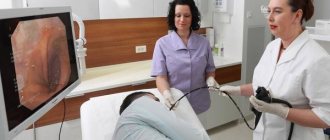Like many infections, hepatitis A is often found in regions where sanitation is poor. From time to time, outbreaks appear in many countries around the world, and children, all adults and the elderly are at risk. There is only one way to protect against a dangerous disease - vaccination against hepatitis A is usually carried out.
This disease is also called Botkin's disease. The virus infects the human liver. The virus is transmitted through food and water, and is often entered into the body by unwashed hands. Symptoms appear 2 weeks or 6 weeks after the virus enters the human body. Symptoms may include:
- severe weakness;
- temperature above +38;
- nausea and vomiting, loss of appetite;
- darkening of urine and lightening of stool;
- The whites of the eyes and skin become yellow.
Symptoms will never appear all at once. First, nausea and weakness occur, then the icteric period begins. Epidemics happen here too. The most effective way of protection is vaccination against hepatitis A for adults and children. Some people are sure that if the disease is not capable of becoming chronic, then it is not necessary to get vaccinated, but few people understand that in the acute period it causes irreparable damage to the liver. In childhood and the elderly, the course of the disease is severe.
Sign up for vaccination Return to service catalog
When are vaccinations necessary for adults?
As a rule, epidemics occur in countries belonging to the third world; therefore, when going to Africa, or South America, Oceania, Nepal or Sri Lanka, Mongolia, be sure to get vaccinated in advance. Only the hepatitis A vaccine will protect you for life.
In our country, vaccination is not mandatory, but it is recommended:
- people who are going to dangerous countries or living in areas where the sanitary conditions are not very good;
- tourists intending to travel to the most disadvantaged countries;
- during epidemics;
- workers of clinics and hospitals, as well as education workers;
- employees of water treatment facilities;
- military personnel;
- kindergarten employees;
- drug addicts;
- catering industry workers;
- those who come into contact with sick people;
- persons with liver diseases, as well as hemophilia.
It is worth noting that older people, although they get sick less often, their illness is much more severe. It is believed that to protect a person at an older age, it is necessary to develop protection up to 55 years of age. In all of the above groups, vaccination is carried out first. There are countries where this vaccination has been included in the general vaccination schedule. Children are recommended to be vaccinated if they go to school or nursery for the first time.
The virus, entering our blood, provokes severe inflammation of the liver. When the function of this important organ is impaired, the amount of bilirubin increases and vitamin deficiency appears. In certain cases, the disease leads to liver failure and death. According to statistics, more than one and a half million people in the world become infected with the virus every year. And we must realize that in many cases, vaccination against hepatitis A is just as important for adults as it is for children.
Prevention is carried out for those people who have not previously had the virus, as well as for all those who may become ill and are at risk.
Vaccine options
There are several hepatitis A vaccines available on the international market. They are all similar in terms of how well they protect people from the virus and the side effects.
There are no licensed vaccines for children under one year of age. The following vaccines are used in Russia: Avaxim, Avaxim 80, Vakta, GEP-A-in-VAK, Havrix 720, Havrix 1440. Mortality from hepatitis A ranges from 1% to 30%, with a clear increase in mortality with age, which is associated with an increased likelihood of infection layering on chronic liver disease.
Hepatitis A vaccine
It must be said that the vaccine contains tiny particles of the virus; it is not active. They are deposited on an existing carrier, namely aluminum hydroxide. This vaccination is given to adults and children at any age. Today, both mono-vaccines and combination-type formulations are widely used. There are types of drugs that can be given to children from the age of one year, some vaccinations are designed for ages after 3 years. Immunization is carried out in several stages, the interval between injections depends on the type of drug.
You must understand that this type of immunization protects not only you, but also your family and other people who are not vaccinated. If you work in certain industries, you are required to get vaccinated. These areas of activity include education, food industry, and medicine.
Diagnosis and treatment of hepatitis A and E
Patients will undergo all the necessary hardware and laboratory examinations in the own laboratory of the multifunctional network of NEARMEDIC clinics, and then receive effective treatment in the gastroenterological or infectious diseases (for acute forms of the disease) departments.
After consultation with a candidate or doctor of medical sciences, a doctor of the highest or first category, the patient is sent for the following diagnostic procedures:
- clinical and biochemical blood test;
- blood test for immunoglobulin A and E;
- PCR diagnostics to detect RNA viruses in the blood;
- serological tests to identify the class of immunoglobulins;
- liver tests;
- coagulogram;
- diagnostics of the condition and functions of the liver using ultrasound diagnostics and magnetic resonance imaging.
If the diagnosis is confirmed, treatment is carried out in a hospital infectious disease department of the network, equipped with everything necessary for the comfort of patients. The main methods of treatment are antiviral and liver function-supporting drug therapy, as well as diet therapy.
Treatment is carried out under the constant supervision of the attending physician (hepatologist, gastroenterologist, infectious disease specialist). The department's dietary nurse strictly monitors compliance with nutritional standards.
For complications of hepatitis E—internal bleeding—transfusions of blood and its preparations are used. In the case of a severe course of the disease with advanced cases and its rapid development, the patient is moved to the intensive care unit.
A pregnant patient with a viral liver infection is under constant supervision of an obstetrician-gynecologist, who decides on the issue of premature birth or emergency termination of pregnancy.
How to get vaccinated
Vaccination against hepatitis A is carried out in private clinics and in some public health institutions. With us you can get vaccinated at any time. Sometimes it is advisable to test for the presence of antibodies to the virus. If they are detected, no vaccination is given.
You do not need to have any documents with you to get vaccinated. The serum is administered if the patient has no contraindications.
Price
Price for hepatitis A vaccination | 1200 rub. |
It must be said that the vaccine contains tiny particles of the virus; it is not active. They are deposited on an existing carrier, namely aluminum hydroxide. This vaccination is given to adults and children at any age. Today, both mono-vaccines and combination-type formulations are widely used. There are types of drugs that can be given to children from the age of one year, some vaccinations are designed for ages after 3 years. Immunization is carried out in several stages, the interval between injections depends on the type of drug.
You must understand that this type of immunization protects not only you, but also your family and other people who are not vaccinated. If you work in certain industries, you are required to get vaccinated. These areas of activity include education, food industry, and medicine.
Contraindications
All vaccines, including the Botkin disease vaccine, have all sorts of contraindications. Sometimes the doctor may refuse if he decides that you should not get vaccinated. A medical exemption may be temporary or permanent. Among the temporary reasons:
- acute infection;
- any chronic diseases with their exacerbation.
Among the constant contraindications it is worth noting:
- presence of allergies to vaccine components;
- too negative reaction the previous time.
People with fever and malaise are not allowed to participate in such disease prevention. The instructions say that the serum is administered a month after complete recovery. When planning a pregnancy, doctors advise applying in advance and getting vaccinated. The vaccine is not given to people with immunodeficiency or cancer. The serum is never mixed with other drugs.
Side effects
In certain cases, immunization may cause an unpleasant reaction. They usually occur less frequently in children. Most often, all adverse reactions disappear after 2-3 days. May be observed:
- heat;
- the appearance of nausea and even vomiting;
- muscle weakness;
- indigestion, loss of appetite;
- drowsiness and general weakness;
- redness, as well as thickening where the drug was injected;
- migraine.
Remember, there is no need to tape the injection site. It is not recommended to get it wet. As a rule, there is no reaction at the next immunization. All symptoms go away within a few days and without medication. To avoid weakening your immune system, refrain from drinking alcohol before and after the procedure. Serious complications are rare and are the exception to the rule. Of course, only you can decide whether you need such protection, but remember that the disease itself is much more severe and can even lead to death.
Symptoms of diseases
The hepatitis A virus causes the well-known Botkin's disease, which, like hepatitis E, is characterized by pre-icteric and icteric stages.
But it is possible to prevent the acute form of hepatitis E if you pay attention in time to the signs that appear even during the incubation period and immediately after it, when the disease has not yet taken root - in the prodromal period: dry mouth, drowsiness, apathy, weakness, variable pain in the occipital region, sleep disturbance, tremors of the extremities. Hepatitis A has no prodormal symptoms.
The pre-icteric and icteric forms of hepatitis A and E are characterized by the following increasing symptoms:
- general signs of intoxication and malaise: weakness, dizziness, lack of appetite, nausea, headache;
- fever, joint pain;
- constipation or diarrhea;
- pain in the right hypochondrium;
- adenoviral symptoms - sore throat, nasal congestion, pain when swallowing;
- development of jaundice with changes in the color of the skin and mucous membranes of the mouth, eyes, etc.;
- darkening of urine and lightening of stool;
- increased body temperature over 38 degrees;
- the appearance of minor skin hemorrhages.
The development of infection occurs at a faster pace when infected with the hepatitis E virus. In this regard, at the first sign, professional help is necessary. Treatment at home is absolutely ineffective - it should only take place in a hospital setting under the supervision of infectious disease specialists, hepatologists or gastroenterologists. A pregnant woman must be urgently taken to a hospital to prevent fetal death or intrauterine development disorders.
How can I find out which vaccinations were done before?
Since 1993, information about vaccinations has been included in vaccination certificates. If you don’t have it at home or at your parents’ house, contact the archives:
- your school or other educational institution
- clinics where you were assigned as a child and adult
Consult your doctor if you are unable to recover your immunization records. When a person is vaccinated, some antibodies will remain in the blood. A blood test for their number will indicate the need for vaccination.
Price
The cost of vaccination depends on the medical institution and the vaccine that is used. For example, vaccination with the Belgian drug Havrix 1440
on average it costs about
2-4 thousand rubles
, Vaqta - just over
2 thousand rubles
.
At the same time, be careful, some clinics in the description do not add a consultation with an immunologist to the cost of the service, so you may have to pay a little more.
This information may be useful to you:
You can print it out and make a reminder for yourself
Benefits of vaccination in any pediatric healthcare setting
RESPONSIBILITY FOR THE LIFE AND HEALTH OF THE PATIENT
- vaccination is carried out only in specially equipped and licensed pediatric medical centers
- All drugs used are approved for use on the territory of the Russian Federation and have the necessary certificates.
- the quality of drugs, expiration dates and storage conditions are carefully controlled
- medical personnel performing vaccinations are certified as “vaccination nurses” and undergo regular additional training and certification
- Before vaccination with any vaccines, all patients are required to be examined by an immunoprophylaxis doctor. The purpose of the examination is to make sure that the patient’s body condition is normal, there are no contraindications or medical exemptions from vaccination, and there is no risk of developing post-vaccination complications.
- After vaccination, the patient must remain in the medical center for at least 30 minutes under the supervision of a vaccination nurse
- the next day after vaccination, the vaccination nurse will definitely call you, check your health status, and make sure that the vaccination was successful.
- in case of need or development of post-vaccination complications, a pediatrician, an immunoprophylaxis specialist, will come to your home free of charge within 24 hours after vaccination and provide the necessary assistance.
Call a doctor at home Make an appointment with a doctor or call +7 (812) 331-17-74
What complications may occur during hepatitis A vaccination?
Content:
- What complications may occur during hepatitis A vaccination?
- Who should be vaccinated against hepatitis A?
- How to get vaccinated against hepatitis A
- When can you get vaccinated against hepatitis A?
Vaccination, like taking certain medications, can cause serious complications, one of which is an allergic reaction to the components of the vaccine. However, compared to other vaccines, it causes fewer complications, so it is easier for the body to tolerate vaccination than to get hepatitis A.
As after any vaccination, a person may develop a fever during the day - this is normal. If the readings are above 38.5°C, then you need to take an antipyretic. Sometimes an inflammatory process may begin at the injection site, but often this is how an allergic reaction manifests itself. If you are prone to allergies, take an antihistamine before vaccination.
If itching and burning occurs at the injection site, you can lubricate it with any oil, baby cream, or buy a special medicinal ointment at the pharmacy that will effectively relieve irritation. In cases where the vaccine injection site is very itchy, you should not scratch it, as this will only make the situation worse.
If other reactions occur, please report them to your doctor immediately. Perhaps your body reacts differently to the vaccine.
Types of vaccines and method of administration
Various imported and domestic types of vaccines are used in medicine.
They have a similar composition and mode of action, so any of them can be vaccinated. Please pay attention to age restrictions. To form full immunity, vaccination is carried out three times.
List of available hepatitis B vaccines:
- Combiotech (Russia) adult.
- Regevak (Russia) for adults and children.
- Euvax (Korea) for children up to 15 years old.
List of available hepatitis A vaccines:
- Algavak (Russia) for adults and children.
- Havrix (Belgium) for adults and children.
The vaccine is administered intramuscularly to children in the thigh, and to adults in the shoulder. This area is convenient because the muscles are located close to the skin. This administration of the drug ensures its sufficient entry into the blood and the formation of an immune response.
Pregnancy and breastfeeding are not officially a contraindication to vaccination. However, due to insufficient evidence, pregnant women are not recommended to undergo vaccinations during this period. The exception is being in a source of infection.
Indications for vaccination
In countries where hepatitis A vaccination is not mandatory, the indications for it are as follows:
- the presence of an outbreak of viral hepatitis A,
- proposed travel to regions with high incidence rates,
- presence of a sick relative in the family,
- having sexual contact with an infected person,
- among professional groups, such as employees of food enterprises, retail chains, workers of water treatment plants and water pumping stations, preschool institutions, health workers,
- risk group, including drug addicts, homosexuals, patients with concomitant liver pathology.
We can talk about the presence of an outbreak if there are 12 cases of the disease for every 1000 people. Vaccination against hepatitis A in this case will help avoid mass spread and prevent an epidemic. The same applies to the category of people traveling to epidemic-prone areas. The largest risk group is military personnel,
traveling to places with insufficient sanitary and hygienic living conditions.
A fairly large risk group that needs vaccination are employees of the food industry. Indeed, dealing with products of questionable quality can be very dangerous. Personal hygiene products, including regular hand washing, should also play an important role here. Regarding employees of preschool institutions, it is an indisputable fact that, despite the fact that children tolerate the disease more easily than adults, nevertheless, they become the main source of the development of the disease and pose the greatest danger.










